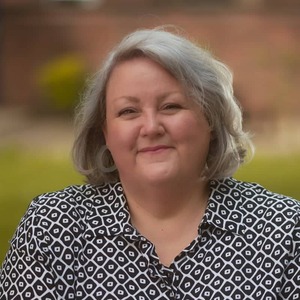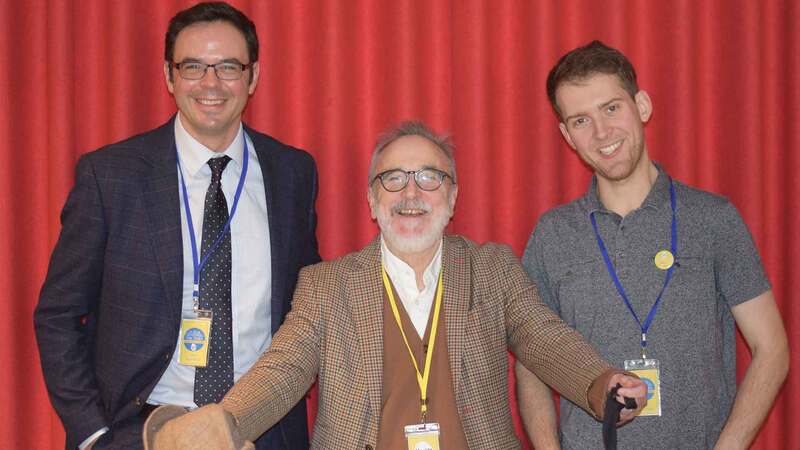You are viewing your 1 free article this month. Login to read more articles.
Levelling the field
At the Edinburgh International Book Festival’s publishing salon event a few weeks ago, I participated in a discussion about how publishers can best support writers. It’s a timely debate to have and it made me reflect on some of the initiatives that New Writing North has been involved in recently working with the publishing industry to support new ways of developing fresh and diverse talent—whether that’s writers from the North, or from under-represented groups nationally. From my perspective, the ecology of writing development has evolved steadily in the past 10 years and there are now new opportunities for us all to work across sectors to create a level playing field for aspiring writers.
For 20 years, New Writing North has invested in grassroots work to discover new writers through projects such as Significant Ink, which nurtured talent in places such as Preston, Bradford and Middlesbrough, or in broader, higher-profile schemes such as the Northern Writers’ Awards, which have launched the careers of more than 200 writers. It’s our core business. We believe that talent is everywhere but the opportunity to fully develop your craft and career isn’t. So we work hard to create these opportunities and to work in partnership with others to amplify our impact and to scale up what’s possible.
Speculate to accumulate
It surprises me that the energy to invest in new ways of developing talent has been historically low in publishing, and it’s great to see trailblazers now emerging. We’ve worked with Channel 4 for five years on a writer development project to identify new screenwriters from the North and have worked with the BBC for many years on similar projects for radio writers. Channel 4 has invested in grassroots activities, funded structured bursaries and supported independent production companies to engage with the selected writers, which has meant that they moved from early discovery to receiving paid commissions for work very quickly. It’s been a very efficient and cost-effective way to bring new writers into the industry.
I welcome the innovation that is starting to happen in the industry and I hope that some of the new projects that we’ve been involved in and helped to create will prove to be sustainable long-term investments. Over the past year we’ve worked with Penguin Random House as it has brought WriteNow to Newcastle and Liverpool, and have been happy to support it in this new way of working by opening up our creative networks. With author Kit de Waal and Unbound we helped to create the crowdfunding campaign for the Common People anthology of working-class writing, and we’re partnering with our fellow writing agencies to create a professional support programme for the 17 new writers that the anthology will launch so that they can make the most of this exceptional opportunity.
This year we worked with small independent And Other Stories to fund the first Northern Book Prize, which was awarded to Amy Arnold. Her novel, Slip of a Fish, will be launched later this year. Most recently, with Hachette we launched a book prize for children’s and “clean teen” fiction, which will be a flagship strand of the Northern Writers’ Awards. This will see us joining together to identify new children’s writers and to support their writing towards publication. It’s a perfect pairing of synergy and mission that plays to the strengths of each partner. We look forward to awarding the first prize next June.
There are real opportunities for partnership working across the development of both readers and writers in areas such as the North, where charitable organsiations and festivals are working hard at reader engagement and development through projects such as Durham Book Festival’s Little Read, with pre-schoolers and their families, and New Writing North’s Read Regional project, which helps authors from the North to engage with readers through partnerships with more than 20 local library services across the region each year. Through this project we meet with thousands of readers who are really motivated by seeing their lives and localities reflected in books. I wish there were more books that we could include.
There are challenges for the development of writing and reading, with reductions in public funding hitting hard in the library sector, in education and in arts funding. Literature receives a tiny amount in comparison to other art forms in Arts Council England’s funding settlements—I personally find this strange, when writers and books underpin much of UK TV and film production and publishing, and associated creative industries are some of our biggest industrial success stories. In this context, it makes sense that we should all be thinking about how we work smartly together to maximise our skills, resources and networks for the best possible outcome—whether that be diversifying our output or supporting readers. The gains for all of us are there to be had.
Claire Malcolm is the chief executive of the North’s writing development agency New Writing North, and producer of the annual Durham Book Festival.
Amy Arnold’s Slip of a Fish, published by independent list And Other Stories, was crowned winner of the inaugural Northern Book Prize earlier this year. Due to be released in November 2018, the book is described by its publisher as “a joyously artful and quietly devastating portrait of motherhood, loss and love, in all its kaleidoscopic complexity”.
















